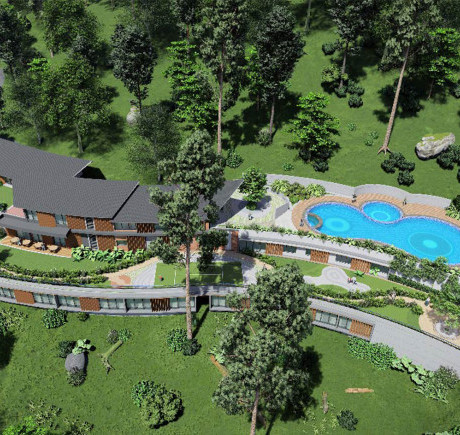Heritage properties in India are seeing a huge demand from Non-Resident Indians (NRIs). These beautiful structures steeped in history and charm are not just homes; they are living pieces of India’s cultural and historical heritage. For NRIs, investing in heritage properties is an opportunity to reconnect with their roots and get a piece of one of the most unique real estate segments.
This kind of investment has emotional value for NRIs as they can own a tangible connection to their homeland’s history. Let us explore how heritage properties are a unique investment opportunity for NRIs.
The Rise of Heritage Properties: A Trend Among NRIs
India’s heritage real estate market is growing, and NRIs are at the forefront of this trend. Several factors driving this interest are:
- Cultural and Emotional Connection: Heritage homes evoke a deep sense of belonging, especially for NRIs yearning to stay connected to their homeland’s traditions and stories.
- Rich Historical Backdrop: From grand Mughal-era mansions to colonial-era bungalows, India offers a variety of heritage properties that reflect its architectural diversity and history.
- Exclusivity and Prestige: With limited availability, heritage homes are considered rare treasures, elevating their value among investors.
- Modern Restoration Efforts: Many heritage properties are now restored to seamlessly blend historical charm with modern-day conveniences, making them more appealing to contemporary buyers.
Benefits of Investing in Heritage Properties
Heritage properties offer unparalleled advantages that make them a distinct category in real estate. Here are some of the benefits:
- Historical Charm Meets Modern Luxury: Restored heritage properties combine authentic historical elements, such as antique woodwork and stone carvings, with high-end amenities like smart home technology, creating a unique living experience.
- High Investment Returns: Limited supply and increasing demand for heritage properties, especially in prime locations, often result in impressive returns on investment.
- Preservation of Culture: Buying a heritage property is not just an investment in real estate but also a contribution to preserving India’s architectural and cultural legacy for future generations.
- Long-Term Value Appreciation: Heritage neighbourhoods, often in sought-after locations, see consistent appreciation in value due to their exclusivity and historical significance.
- Vacation Home Potential: Many investors use heritage homes as weekend retreats or list them as luxury vacation rentals, creating an additional income stream.
Read Also: Top Factors to Consider When Selecting a Neighbourhood for Your High-End Residence
Why NRIs Are Drawn to Heritage Properties
Heritage properties resonate with NRIs on multiple levels, making them a popular choice for this demographic:
- Emotional Value: Owning a heritage property allows NRIs to reconnect with their ancestral roots. These homes often serve as a tangible reminder of family histories, cultural traditions, and stories passed down through generations.
- Prestige and Status: Heritage properties are symbols of exclusivity and sophistication, offering owners a sense of pride and recognition. For NRIs, these homes represent more than just luxury; they are landmarks of cultural importance.
- Investment Potential: Demand for heritage homes in key cities has steadily risen, especially among affluent buyers. This upward trend makes these properties a smart investment with strong prospects.
- Tax Incentives and Government Support: The Indian government provides incentives for heritage preservation, such as tax benefits and grants, which make the investment process more appealing for NRIs.
Read Also: The Hidden Costs of Purchasing a Luxury Apartment: What You Need to Know
Top Locations for Heritage Property Investment in India
India’s vibrant real estate market is enriched by cities known for their historical and architectural treasures. Here are some of the top locations for heritage property investments in India:
- Mumbai: From art-deco apartments to British-era bungalows, Mumbai’s heritage properties are highly sought-after for their proximity to business hubs and luxury amenities.
- Jaipur: Known as the Pink City, Jaipur boasts opulent havelis and palaces that reflect Rajasthan’s royal history. These properties are ideal for buyers seeking grandeur and charm.
- Delhi: India’s capital is home to a mix of Mughal-era mansions, colonial-style homes, and modern infrastructure, making it a hotspot for heritage property investment.
- Udaipur: Often referred to as the “City of Lakes,” Udaipur features palatial homes surrounded by breathtaking landscapes, offering a serene lifestyle.
- Kolkata: Colonial mansions and stately homes in Kolkata capture the grandeur of British-era architecture, making it a treasure trove for heritage enthusiasts.
How NRIs Can Navigate the Indian Real Estate Market
Navigating the real estate market in India as an NRI requires understanding local regulations and working with the right experts as follows:
- Legal Requirements: NRIs must comply with regulations under FEMA (Foreign Exchange Management Act). Restrictions often apply to agricultural and plantation land, but residential and commercial properties are open for purchase.
- Trusted Developers: Partnering with reputable developers ensures transparency, quality, and a hassle-free buying process.
- Simplified Transactions: With advancements in technology, NRIs can complete most transactions remotely, from virtual tours to digital document submissions.
- Financial Planning: NRIs can avail themselves of NRI-friendly home loans and tax benefits to make the investment process smoother.
- Maintenance and Preservation: Many developers provide property management services to help NRIs maintain their heritage homes in pristine condition.
Maintaining and Preserving Heritage Properties
Owning a heritage property is both a privilege and a responsibility. These homes are architectural marvels and carriers of India’s cultural history. Here’s a detailed look at how to maintain and preserve a heritage property effectively:
- Professional Restoration: Restoring a heritage property requires expertise and care. Professional preservation architects and craftsmen with experience in handling historical structures can ensure authenticity while making necessary repairs. Hire experts to repair and restore original features like wooden beams, stonework, and frescoes, ensuring authenticity.
- Upgraded Infrastructure: While preserving historical features, modern upgrades are essential to make the property functional and sustainable. Add modern systems such as energy-efficient lighting, plumbing, and climate control while maintaining the property’s heritage aesthetics.
- Routine Upkeep: Heritage homes require consistent upkeep to prevent deterioration. Regular inspections and maintenance of structural elements prevent costly repairs down the line.
Future of Heritage Property Investment in India
The market for heritage properties in India is poised for growth as NRIs and affluent buyers continue to seek unique investments that combine luxury with cultural value. With changing lifestyles and evolving real estate preferences, the heritage property market presents several opportunities and trends for the future as follows:
-
Increased Demand for Experiential Living
Modern buyers, especially NRIs, are shifting toward experiential living. Heritage homes, with their unique stories and historical charm, cater to this demand by offering a lifestyle that blends tradition with modern comforts.
- Heritage homes are increasingly used as boutique hotels or luxury vacation rentals, generating additional income for owners.
- Properties with preserved architecture and historical significance are becoming popular for destination weddings, retreats, and cultural events.
-
Urbanisation Meets Heritage Preservation
As urbanisation spreads across India, cities like Mumbai, Jaipur, and Delhi are witnessing a rise in heritage conservation efforts.
- Developers are restoring heritage buildings in prime urban areas, transforming them into luxurious residences or commercial spaces.
- Proximity to modern infrastructure and amenities adds value to these properties, making them highly desirable.
-
Government Support and Incentives
The Indian government has launched initiatives to encourage the preservation of heritage properties as follows:
- Tax incentives for owners who restore and maintain heritage homes.
- Grants and subsidies for conservation projects under programs like the National Heritage City Development and Augmentation Yojana (HRIDAY).
- Easier regulatory processes for NRIs investing in heritage properties.
Conclusion
Investing in heritage properties offers NRIs a rare opportunity to own a piece of India’s rich history. These properties combine unmatched charm, financial benefits, and emotional significance, making them a valuable addition to any real estate portfolio.
Whether for personal use or as a long-term investment, heritage properties reflect a deep connection to India’s cultural and architectural legacy.
Ready to begin your journey into heritage property ownership? Check out Rustomjee properties today to explore the finest heritage-inspired homes.
FAQs
- What challenges should NRIs expect when purchasing and maintaining heritage properties in India?
NRIs may face challenges such as higher maintenance costs, restrictions on alterations due to preservation laws, and the need for specialised expertise in restoring or preserving the property. Additionally, navigating the legal framework around heritage property ownership can be complex, requiring careful due diligence.
- Are heritage properties in India a good source of rental income for NRIs?
Heritage properties, especially those in tourist-heavy areas, can provide a unique source of rental income, particularly through short-term vacation rentals or cultural tourism. However, NRIs should consider the cost of preservation and local demand before investing solely for rental purposes.
- How do heritage properties in India compare to modern real estate investments for NRIs?
Heritage properties often offer unique value through historical significance and potential for appreciation, but they come with higher maintenance costs and regulatory challenges. In contrast, modern real estate investments may offer more immediate returns and fewer complications but lack the cultural value and long-term charm of heritage properties.








